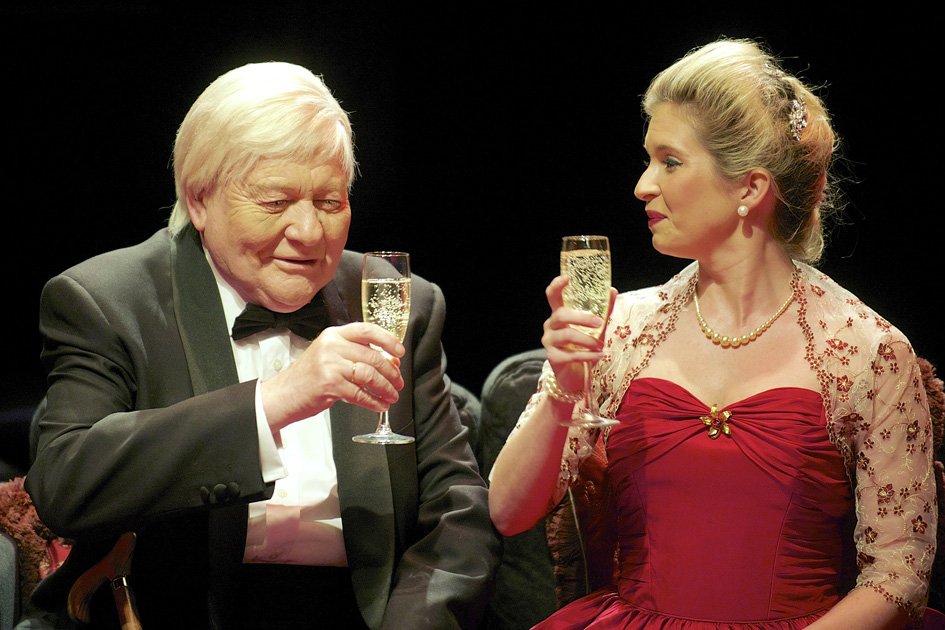One of the fundamental tenets of drama is that the audience must be aroused to asking, ‘what will happen next?’ Unless our interest is thus engaged we become quickly bored. One neat way around this requirement is to finish whatever it is before the audience has a chance to lose interest and instead of, say, four acts give your audience four short plays. Now this approach will immediately pique their interest by an expectation that the plays will be in some way related and that a common theme will inform each in some way. If they are not, then at least you have the interest of the individual plays to fall back on.
In Alan Ayckbourn’s latest offering this approach is taken up with the further complication that the audience get to choose the order in which the plays are presented a half an hour or so before curtain up. The object of this is apparently to make us aware of the fact that theatre is live and so subject to the same ‘chance’ that governs all our lives. Personally I’m not sure that I needed any reminding that theatre was live and not being signed up to predestination or fatalism have no difficulty in swallowing the latter concept.
The first play (last night) is about a retired judge who has hired the services of a call girl, through the good offices of some shady character, not for any overtly sexual motive, but rather to remind him of his late wife to whom the said call girl supposedly bears a strong resemblance. It is a touching portrait of fading memory played with an engaging sensitivity by Russell Dixon as the judge and Brooke Kinsella as the stroppy tart with a heart.
The second, somewhat implausible helping, concerned a young wannabe actress/famous person (an energetic Krystle Hylton) who had invited a self-promoting successful agent (Elizabeth Boag) along to a rehearsal of the Mikado in which she was playing Yum Yum. The girl didn’t like the part, or the name and didn’t think it was a proper musical. The agent had only just started up, but had a string of top names and was broke and was the first girlfriend of the (broken hearted) vicar (Richard Stacey) who happened to be directing the Mikado.
The third piece was a kind of mini murder mystery, which I won’t spoil by any revelation of detail, only to say it saw the return of our judge, a self-publishing novelist and the same ineffectual clergyman from the Mikado.
Finally we had a bit of fun with mistaken identity as a seedy politician (Nigel Hastings) and the same wannabe sixteen year old actress who inexplicably turned up at his office in school uniform expecting to audition, carried on at cross purposes; the politician thinking she was there to do some ‘barely legal’ personal service.
For me the four plays didn’t hang together and were only saved from complete collapse by some good acting. E.M.Forster gives a useful distinction of the difference between a random sequence and a plot; whereas, ‘The king died then the queen died’, is a story, ‘The king died then the queen died of grief’, is a plot in virtue of the fact that the latter contains the element of causality. In Roundelay Mr. Ayckbourn has lost the plot in that sense, but hasn’t quite given us a satisfying replacement. ★★★☆☆ Graham Wyles 02/02/15


